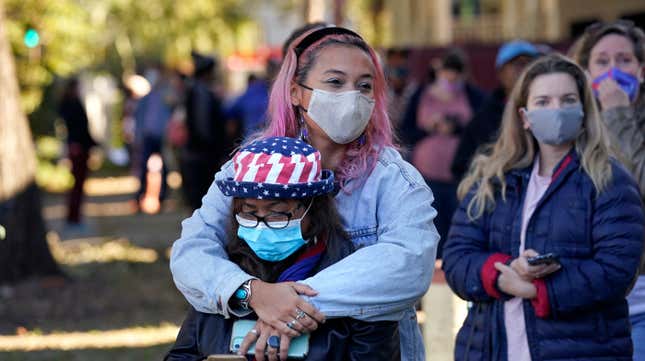Women Will Likely Feel the Effects of the Pandemic for Generations to Come
Latest

As the covid-19 crisis continues to ravage America unfettered by any meaningful government assistance or intervention, women—particularly low-income mothers and especially women of color—remain among the groups most affected by unemployment and lack of childcare. And both the virus and failures to provide systemic support for those impacted will likely be the source of financial hardship for decades, if not generations, to come.
According to a recent report by the New York Times, the industries hardest hit by covid-19 shutdowns—food service, retail, and health care—also tend to be the ones in which women far outnumber men in terms of employment. And even as these businesses see tentative reopenings across the country, “there were still 4.5 million fewer women employed in October than there were a year ago, compared with 4.1 million men,” according to the Times. Unemployment rates are disproportionately high for Black women at 9.2 percent and Latinas at 9 percent, as opposed to white women at 5.6 percent. In an additional report, the Times found that school and daycare closures mean that a great many families are without childcare, leaving the task primarily to mothers. These factors combined could, according to experts, create a gap in the workforce and women’s lifetime earned income that could have negative repercussions far into the future:
-

-

-

-

-

-

-

-

-

-

-

-

-

-

-

-

-

-

-

-

-

-

-

-

-

-

-

-

-

-

-

-

-

-

-

-

-

-

-

-








































